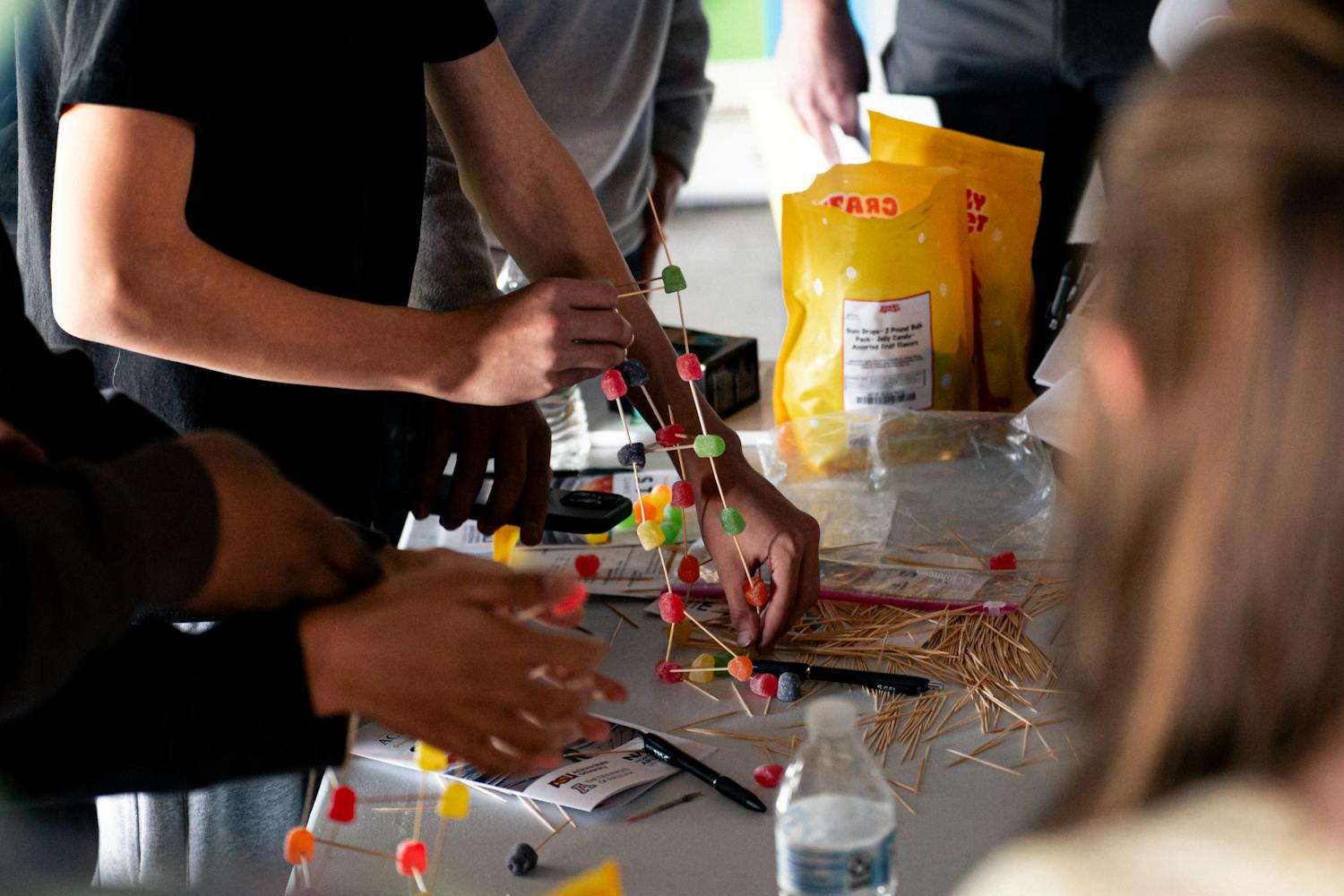If it weren't for the rabid degree of patriotism I've been showing since September 11, I don't know that I would have watched President Bush's State of the Union address at all.
Bush's speech was about 40 minutes long with about 15 minutes of applause scattered throughout. Some people even whistled. I, for the most part, chewed on a pen.
So, you're mildly interested in what the President had to say and what it all means. Well, here's how he started out, "As we gather tonight, our nation is at war, our economy is in recession, and the civilized world faces unprecedented dangers — yet the state of our union has never been stronger."
After Bush made this mild quip about recession, he mostly turned to the quasi-war with Afghanistan.
Bush's discourse on the war was intelligent, strongly worded and curious. America freed a country from brutal oppression, fed the hungry, clothed the naked and kissed the babies in our campaign to be loved the world over. After all, it's always nice to pat yourself on the back for a job well done, and in this case Bush deserved it.
With remarkable predictability, however, the speech took a turn toward an increase in military spending and the missile defense shield. There are apparently nations filled with terrorists (North Korea, Iran, and Iraq to be specific) that haven't learned the might of American armed forces and who could challenge our Army, Navy and Air Force today.
Wise nations like Pakistan have chosen to take a hard line against terrorists thanks to President Bush's policies.
During his campaign, Bush wasn't given high marks for his skill as a negotiator or his international prowess, but now that has changed. He's built a powerful coalition out of an estranged group of nations with little in common but a desire to be a part of the free market economy and to have the United States' good will. After Clinton's failed attempts at reconciliation between factions in the Middle East, Bush's hard line is refreshing.
Simply put, he's ignoring posturing and focusing on results.
There are only two problems I have with the entire war. The first is that Bush is not adhering to the spirit of the Geneva Convention. The second is our holding of "terrorists" in Guantánamo Bay, Cuba.
While the letter of the Geneva Convention appears to support our claims that we need not accord these "terrorists" with the same rights standard prisoners of war would be granted it sets a dangerous precedent. If we're at war, what do we call the people we capture? In Bush's words "terrorists;" in mine "prisoners of war."
It's a matter of how much interrogation we can do. If they are terrorists we can essentially do as we please (whip them with wet noodles, beat them with pogo sticks, etcetera); if they are prisoners of war, we have to be content with asking questions without infringing on the POWs' rights.
I would want any of our armed forces to be treated with dignity if they were captured, and so I want the "terrorists" to receive the same just treatment.
Energy policy is another issue where Bush stumbles. President Bush's solution to our excessive consumption is to call for our nation to produce more energy so that we are not at the mercy of foreign concerns (read: OPEC).
But if we're really serious about changing our energy usage something drastic must be done. We have to find alternative methods of producing energy. This will not occur without creative, gutsy policy writing. One solution might be to put a dollar tax per gallon on gasoline and use it to fund research. At the very least, Bush could have asked all patriotic Americans to turn their thermostats down a few degrees.
Of course, these concerns seem minor when facing all of the threats from abroad. Bush rightfully has these threats first and foremost in his mind.
Our freedom, liberty, and safety as Americans are Bush's serious concerns. To that I can only put my hands together and clap like a political crony.
North Noelck is a Biology major. Reach him at north.noelck@asu.edu



